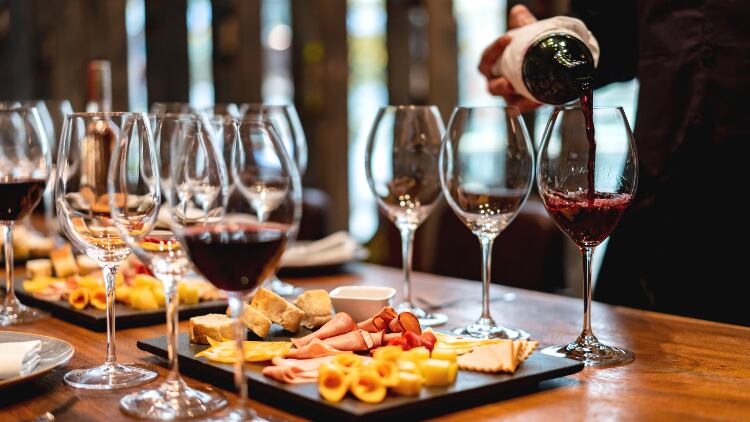In the Budget on Wednesday 15 March, the Chancellor Jeremy Hunt announced the freeze to alcohol duty will also end on 1 August and has chosen to hike duty by inflation – at 10.1% RPI – wine drinkers will face a staggering 20% tax.
The announcement comes after the Wine and Spirit Trade Association (WSTA) warned any alcohol duty increase would stoke inflation, which the Government claimed to be bringing down.
When the Government’s new alcohol duty regime comes into force on 1 August 2023 – which will broadly tax alcohol according to strength – some 90% of all still wine is set to ese at least a 9% duty rise.
The tax rise will mean duty on a bottle of still wine will go up by a staggering 44p. For fortified wines the duty rises will be even greater with port set to rise by £1.30 a bottle, and a bottle of vodka going up by 76p.
WSTA chief executive Miles Beale said: “This Budget directly contradicts what this Government claims it is trying to tackle. It will further fuel inflation. It will heap more misery on consumers. And it will damage British business, especially those in the hospitality supply chain, who are still trying to recover from the pandemic.
Double whammy
He said the double whammy tax hike for wine was a particularly bitter blow for the UKs SME rich wine businesses, claiming it begged the question, what does Government have against people who choose to produce and drink wine?
Beale continued: “These crippling inflationary tax hikes will be lumped on top of stealth tax rises for some alcoholic products, which the Government has built into the move to taxing alcohol by strength.
“After all the effort to relaunch hospitality supply chains in 2022, the Government is offering no help in 2023 for the wine and spirit trade – and particularly for the UK’s 33m wine drinkers who will see their – and the nation’s – favourite drink hit with a 44p duty rise in the midst of a cost-of-living crisis.”
What’s more, GMB Scotland secretary Louise Gilmour warned: “It’s yet another unhelpful political measure for Scotland’s whisky and spirits sector, following hard on the back of Holyrood proposals for an alcohol advertising ban.
“GMB’s concern is that workers mired in the cost-of-living crisis will see their pay, conditions, and ultimately investment in their workplaces, curtailed by employers seeking to clawback costs as a consequence of short-term political policy.
"Let’s also be clear, workers are facing tough international competition and they are still dealing with the damaging legacy of Trump’s whisky tariffs while Truss and Johnson were sleeping at the wheel - this latest tax increase risks leaving them even further behind.
“Whisky and spirits production is the jewel in the crown of Scotland’s world-class food and drinks sector, but the political bubble looks out of touch about its importance not just to the country, but to the workers, communities, and supply-chains that depend on its future growth.”
Silver lining
Furthermore, the freeze of duty in pubs means a typical pint of beer will cost 11p less in tax than its equivalent from a supermarket come 1 August.
Further reading on the Spring Budget:
- Hunt announces 'British ale is warm but the duty on a pint is frozen'
- End of energy support will put trade in 'unsustainable predicament'
- Failure to address business rates reform will 'anger' sector
- Spring Budget 2023: No apprenticeship levy reform
- Axed energy support may cause mass closures
- Duty hike 'bitter blow' for drinks firms
Research by UHY Hacker Young, the national accountancy group, showed there has been 83% rise in the number of pub and bar companies becoming insolvent in the last year jumping from 280 in 2021, to 512 in 2022.
UHY Hacker Young partner James Simmonds said: “For pub companies this couldn’t come soon enough. The soaring price of beer is putting off pub customers. Anything that helps put a lid on the price of a pint is going to be very welcome.
“Pubs have long complained about the unfair competition from supermarket sales of alcohol.
“As this doesn’t come into effect until August, many in the pub trade are wondering what about the next five months until then?
“Favouring pubs in tax policy is a tonic for the struggling pub trade – they would like to see the gap increase.”




